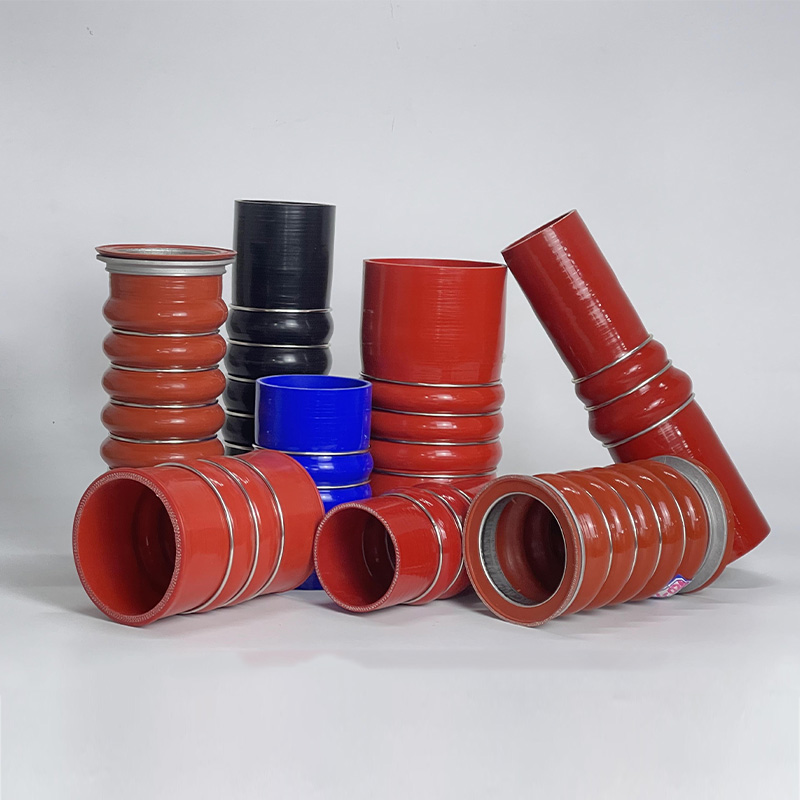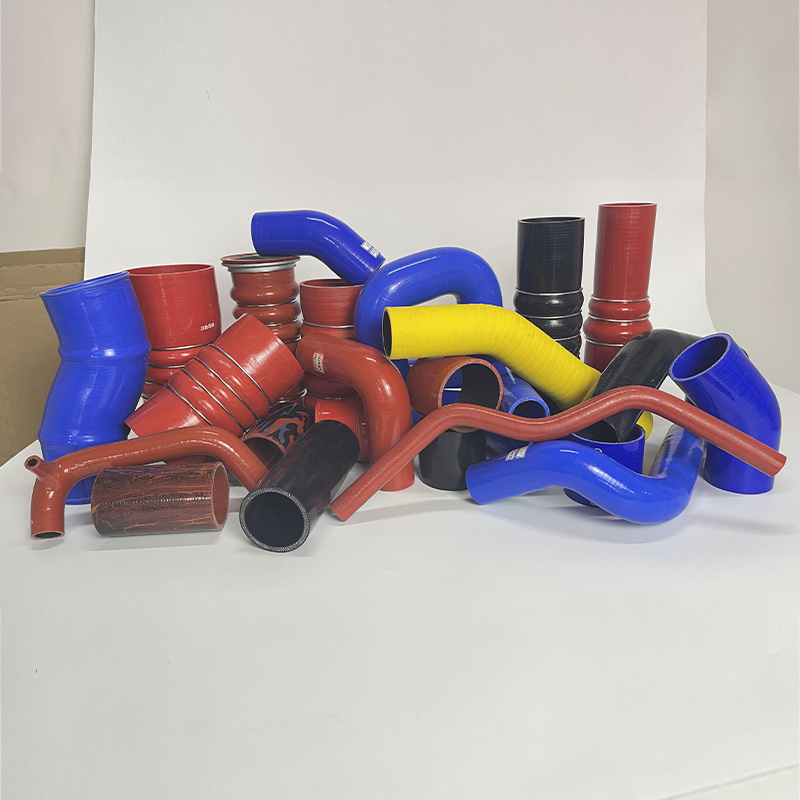Silicone tube is a kind of rubber with wide and good comprehensive properties. It has excellent electrical insulation performance, aging resistance, chemical stability, oxidation resistance and weather resistance, radiation resistance, physiological inertia, good air permeability, and high and low temperature resistance. It can be used in -60℃~250℃ for long-term use. Therefore, it is widely used in aviation, electronics, petroleum, chemical industry, machinery, electrical appliances, medical, oven, food and other modern industries, defense industry and daily necessities.
The silicone tube is made of silicone rubber raw rubber added to a double-roller rubber mixer or an airtight kneader, and white carbon black and other additives are gradually added to be refined repeatedly and evenly. According to the technical standards of the industry, the product is made by extrusion.
Classification
Common silicone tubes are: medical silicone tube, food grade silicone tube, industrial silicone tube, silicone special-shaped tube, silicone tube accessories.
Medical silicone tubes are mainly used for medical device accessories, medical catheters, and adopt antibacterial design to ensure safe use.
Food-grade silicone tubes are used for water dispensers, coffee machine diversion pipes, and waterproof line protection for household appliances.
Industrial silicone tubes are used for special chemical, electrical and other special environmental protection carrier circulation, using special performance silicone.
technical features
1. Hardness: 70±5, tensile strength: ≥6.5.
2. Product color: transparent, white, black, red, yellow, green (can also be produced on request).
3. Temperature resistance range: -40–300℃.
4. Size: caliber 0.5—30MM.
5. Surface properties: Comb water, non-stick to many materials, and can play an isolation role.
6. Electrical properties: When exposed to moisture or water or the temperature rises, the change is small, even if it burns in a short circuit.
7. The generated silicon dioxide is still an insulator, which ensures that the electrical equipment continues to work, so it is most suitable for making wires, cables, and lead wires.
performance characteristics
①Continuous use temperature range: -60℃~200℃;
②Soft, arc-resistant and corona-resistant;
③ Various specifications can be customized according to customer requirements.
④Harmless, non-toxic and tasteless
⑤High pressure resistance, environmental protection
Features
Silicone rubber is a new type of polymer elastic material, which has excellent high temperature resistance (250-300°C) and low temperature resistance (-40-60°C), good physiological stability, and can withstand repeated harsh conditions. And disinfection conditions, with excellent resilience and small permanent deformation (200 ℃ 48 hours less than 50%), breakdown voltage (20-25KV/mm), ozone resistance, UV resistance. Radiation resistance and other characteristics, special silicone rubber has oil resistance.
application
1. Transportation: used in shipbuilding industry.
2. Radio and motor: in the telecommunications industry.
3. Applied in instrument and instrument industry.
4. Application in aviation industry.
5. Suitable for home appliances, lighting, medical treatment, beauty and hairdressing equipment, etc.
The difference with PVC pipe
Silicone tube is also a kind of rubber tube, which is oil-resistant and heat-resistant. Rubber tubes have many applications due to different types of rubber. Commonly used rubber tube materials include EPDM, CR, VMQ, FKM, IIR, ACM, AEM, etc. Common structures include single-layer, double-layer, multi-layer, and reinforced , unenhanced, etc.
First of all, silica gel belongs to rubber material, PVC belongs to plastic material, the main material of PVC pipe is polyvinyl chloride, and the main raw material of silicone pipe is silicon dioxide.
1. PVC pipe is made of polyvinyl chloride resin, stabilizer, lubricant, etc., and then extruded with a hot-press injection molding machine. The main performance, electrical insulation; good chemical stability; self-extinguishing; low water absorption; easy to stick Connection, can withstand high temperature of about 40 °. The main appliances are industrial gas, liquid transportation, etc., household sewer pipes, water pipes, etc. Environmental protection issues: The main auxiliary materials such as plasticizers and anti-aging agents added are toxic. The plasticizers in daily-use PVC plastics mainly use dibutyl terephthalate, dioctyl phthalate, etc. These chemicals Products are toxic.
2. Silicone tubing, the silicone material has stable chemical properties, does not react with any chemical substances except strong alkali and hydrofluoric acid, has good chemical properties, good electrical insulation performance, is not easy to age and weather, soft material, environmentally friendly and non-toxic material, Colorless and odorless. Domestic pipes will be made of silicone material, mainly used in household appliances, medical industry, industrial industry, automobile industry and so on.
The biggest feature of silicone hose is that it is resistant to temperature changes from -60 degrees to 250 degrees, but the cost is very expensive. PVC is often used as ordinary water pipes, which are sensitive to temperature, cheap and smelly, suitable for general working environments, and have no requirements for hoses. Pressure-resistant silicone tubes can withstand pressure, but PVC is average, depending on the wall thickness and caliber. These are the differences between silicone tubes and PVC tubes.
Post time: Apr-07-2023

